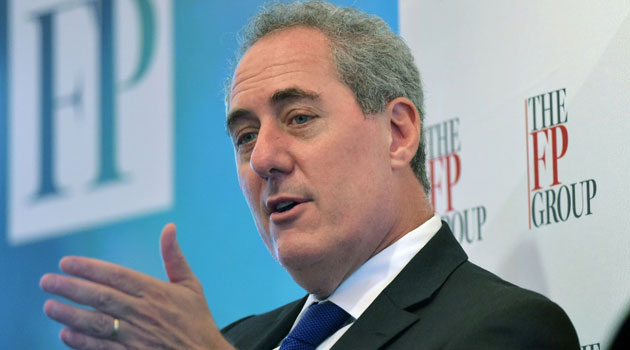
US Trade Representative Michael Froman, in a statement on behalf of the 12 countries involved, insisted that “significant progress” had been made on the Trans-Pacific Partnership (TPP) agreement/AFP
But US Trade Representative Michael Froman, in a statement on behalf of the 12 countries involved, insisted that “significant progress” had been made on the Trans-Pacific Partnership (TPP) agreement.
“After more than a week of productive meetings we’ve made significant progress and will continue on resolving a limited number of remaining issues, paving the way for the conclusion of the Trans-Pacific Partnership negotiations,” said Froman.
The negotiators were “more confident than ever that TPP is within reach,” he said, adding that the Pacific Rim countries involved would continue to have bilateral discussions to try and iron out their remaining differences.
“The progress made this week reflects our long-standing commitment to deliver an ambitious, comprehensive and high-standard TPP agreement that will support jobs and economic growth across the Asia-Pacific region.”
The failure to hammer out the final details of the accord are a blow to Obama as it could see the TPP become campaign fodder as the United States gets set to enter election season.
The TPP is the most ambitious trade deal in decades, a vast free-trade bloc encompassing 40 percent of the world’s economy and part of Obama’s much-vaunted “rebalance” towards Asia in the face of an increasingly assertive China.
The 12 countries involved, also including Australia, New Zealand, Japan and Canada, have faced criticism for carrying out their negotiations in what opponents have charged is a high level secrecy.
Critics say the proposals indicate a deal moving more toward protection than free trade; one more about corporate benefits than boosting economies and development.
But backers say the modern global economy needs a new framework of rules to protect intellectual property-dependent 21st century industries that aren’t covered in traditional free trade pacts like the World Trade Organization.









































